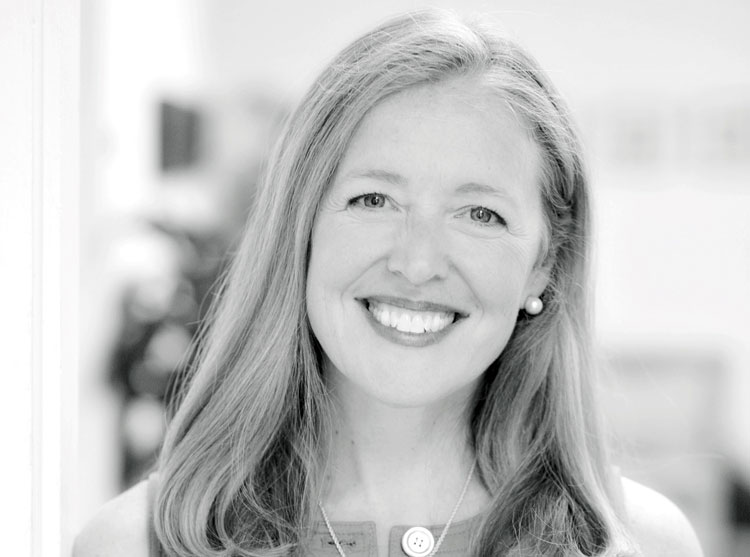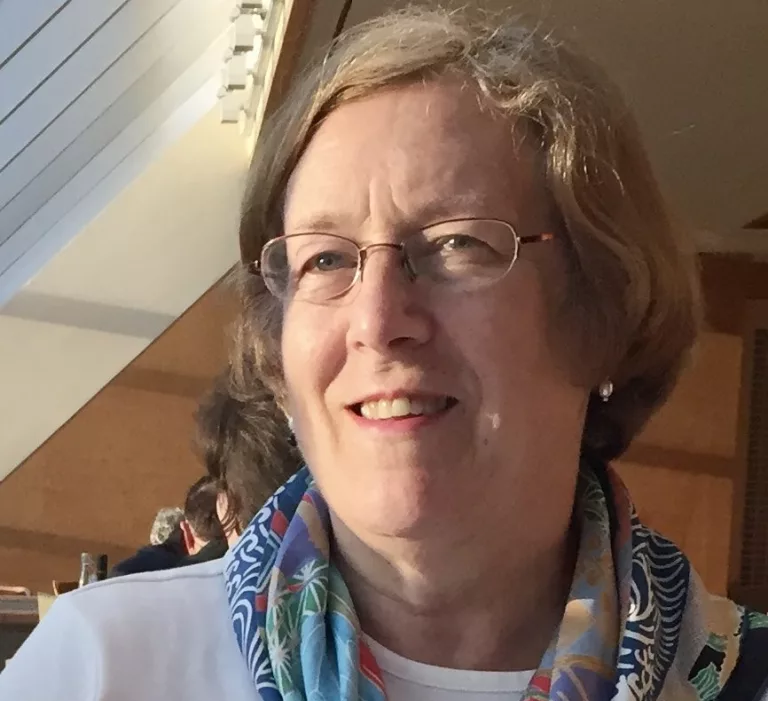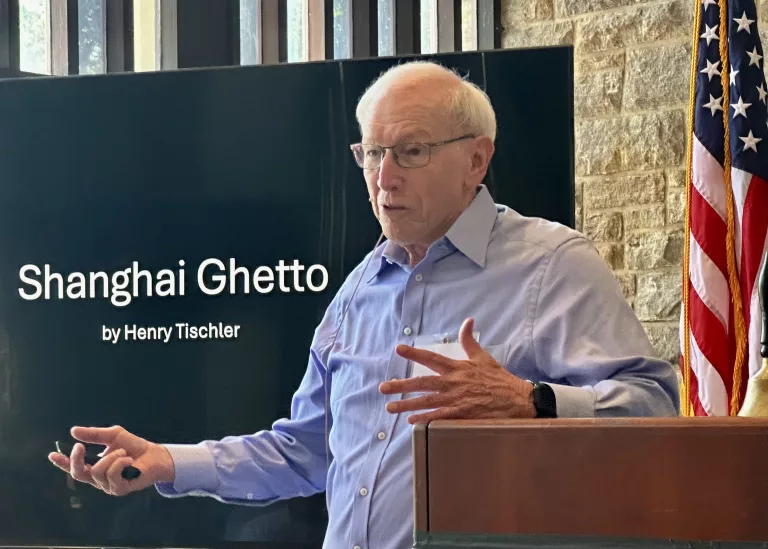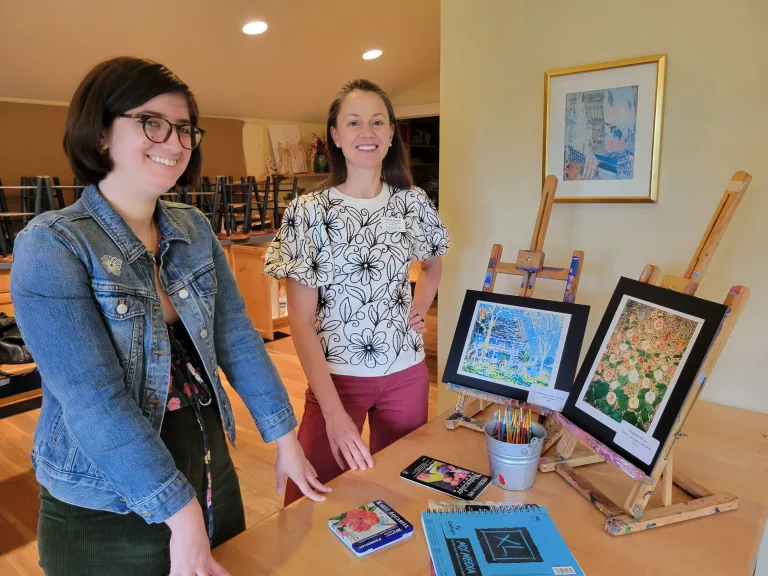
By Rabbi Mitch andRev. Heather Wright
In this season of giving thanks, faith reminds us that this is only our temporary home. We are called to share what we have and remember life is a gift. As much as we work hard to accumulate wisdom, security, status and comfort, we are all still under God’s ultimate shelter and provision.
Rabbi Mitch: Jews observe each year the weeklong festival of Sukkot, the Festival of the Booths. Sukkot is a harvest festival of thanksgiving, and holiday purposefully comes right after our observance of Yom Kippur, our solemn Day of Atonement. When Yom Kippur concludes, even before Jews break their 24-hour fast, we go outside and drive a nail into the Sukkah, the booth we plan to build. This concrete physical action is a reminder that ultimately life is about sacred celebration and not solemnity.
When we build the Sukkah and dwell within the booth we have built, we recall how our spiritual ancestors dwelled in booths during their 40 years of wanderings within the wilderness, before they would finally enter into the Promised Land of Israel. The tradition is that we dwell in our Sukkah for seven nights, eating our meals in the Sukkah with family and friends.
The Sukkah we build has to be temporary in nature and the roof built must allow the individual to see upwards towards the open sky. Usually, the roof is covered with branches, often from palm trees. The Talmudic sages pronounced that our Sukkah must be “open to both the weather and the world.”
The Sukkah is a metaphor for faith. The booth constructed is not fancy; it’s meant to be basic. But, we open up our Sukkah to warmly welcome in family, friends, neighbors and the strangers within our midst. We feed our guests, both physically and spiritually, and we express gratitude for the blessings God shares with us all.
A primary prayer at Sukkot is Ufros Aleinu, asking God to “spread over us Your sukkah of shalom — Your shelter of peace and safety.” The Sukkot prayers and rituals also remind us of the fragile illusion of physical security, and that true security only comes from God, and how we human beings learn that we are God’s outstretched hand that provides shelter to all those in need. The Sukkah reminds us that each and every day we make ourselves open to the stars, to God, and to each other.
Rev. Heather Wright: Knowing more of what this festival means to our Jewish brothers and sisters helps Christians to understand the significance of Jesus attending this festival in first century Israel with his followers. This story in the Christian Scriptures appears in the book of John, chapter 7.
On the last and greatest day of the Feast of Sukkot, Jesus stood and said in a loud voice, “Let anyone who is thirsty, come to me and drink.”
As the Scripture has said, out of the believer’s heart shall flow rivers of living water. Living water is a phrase found throughout the Hebrew and Christian Scriptures used to describe God and what will happen in the fullness of time.
Let us go back in time to Jerusalem when Jesus made this pronouncement on the Temple steps. Try to imagine the scene, listen for the joyful songs, the prayers, the animals led for sacrifice, the buzzing of the crowd of pilgrims. This is the last and greatest day of the Feast of the Tabernacles, also known as the Festival of the Booths, or Ingathering. It occurred in the 7th month equivalent to our September or October. It was a week of celebrating for the harvest, living in booths (to commemorate God’s deliverance in the wilderness), and offering sacrifices. Deuteronomy commands you to come joyfully and bring your sons and daughters, your men and maidservants, the Levites, aliens, orphans and widows of your town. The punishment for not attending the Feast was the withholding of rain.
One of the outstanding features of this event was the pouring of water. A priest collected a golden pitcher of water from the pool of Siloam; this was then poured into a basin at the foot of the altar. From another pitcher, wine was poured into the same basin. These mingled together and flowed through special pipes back to the Brook of Kidron again. It symbolized the ritual prayer for abundant rain and was Messianic in that it looked toward the outpouring of God’s Spirit. This ritual reminds us of Ezekiel’s vision of God’s house (47:1-11) with waters that poured out from under its threshold representing the unrestricted flow of God’s blessings upon God’s people. The climax of the feast was the closing assembly on the 8th day. The day was also known as the Great Hosanna, praying for a Messiah to swiftly bring salvation.
The pouring of the water from the gold pitcher took place amidst the blasting of the trumpets by the priests, the singing of the sacred music by the Levites, and the people waving their palm branches chanting the Hallel from the Psalms. The Messianic fervor was at its highest pitch when Jesus stood and spoke. The immediate context of this story is more dramatic knowing more of the meaning behind it and actions that took place during the festival.
For both of our religious traditions, the festival of Sukkot is a time of celebration, coming together to remember God’s gracious provision, nourishment for our bodies and for the earth, both physically and spiritually, and thanksgiving for God’s many blessings. In a tumultuous world, we acknowledge that God is the true source for peace, shelter and safety.





